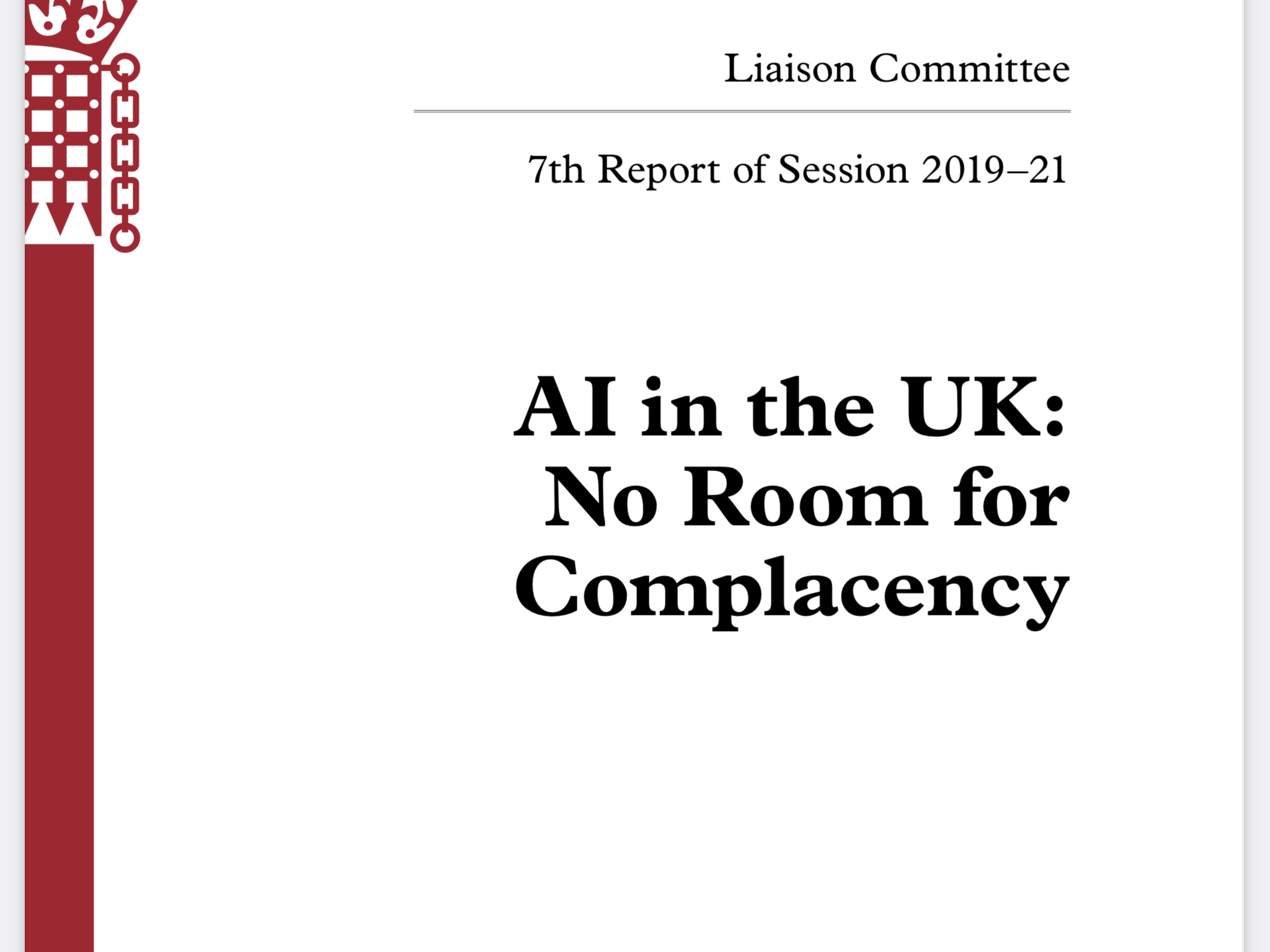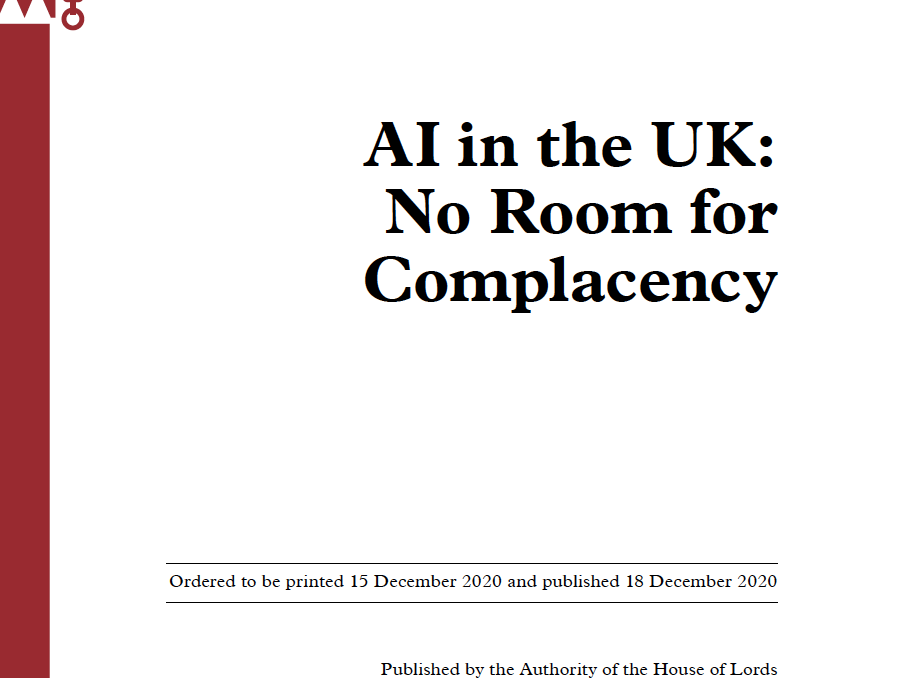The House of Lords recently debated the Report of the Communication and Digital Committee on Digital exclusion . This is an editred version of what I said when winding up the debate.
Trying to catch up with digital developments is a never-ending process, and the theme of many noble Lords today has been that the sheer pace of change means we have to be a great deal more active in what we are doing in terms of digital inclusion than we are being currently.
Access to data and digital devices affects every aspect of our lives, including our ability to learn and work; to connect with online public services; to access necessary services, from banking, to healthcare; and to socialise and connect with the people we know and love. For those with digital access, particularly in terms of services, this has been hugely positive- as access to the full benefits of state and society has never been more flexible or convenient if you have the right skills and the right connection.
However, a great number of our citizens cannot get take advantage of these digital benefits. They lack access to devices and broadband, and mobile connectivity is a major source of data poverty and digital exclusion. This proved to be a major issue during the Covid pandemic. Of course the digital divide has not gone away subsequently—and it does not look as though it is going to any time soon.
There are new risks coming down the track, too, in the form of BT’s Digital Voice rollout. The Select Committee’s report highlighted the issues around digital exclusion. For example, it said that 1.7 million households had no broadband or mobile internet access in 2021; that 2.4 million adults were unable to complete a single basic task to get online; and that 5 million workers were likely to be acutely underskilled in basic skills by 2030. The Local Government Association’s report, The Role of Councils in Tackling Digital Exclusion, showed a very strong relationship between having fixed broadband and higher earnings and educational achievement, such as being able to work from home or for schoolwork.
To conflate two phrases that have been used today, this may be a Cinderella issue but “It’s the economy, stupid”. To borrow another phrase used by the noble Baroness, Lady Lane-Fox, we need to double down on what we are already doing. As the committee emphasised, we need an immediate improvement in government strategy and co-ordination. The Select Committee highlighted that the current digital inclusion strategy dates from 2014. They called for a new strategy, despite the Government’s reluctance. We need a new framework with national-level guidance, resources and tools that support local digital inclusion initiatives.
The current strategy seems to be bedevilled by the fact that responsibility spans several government departments. It is not clear who—if anyone—at ministerial and senior officer level has responsibility for co-ordinating the Government’s approach. Lord Foster mentioned accountability, and Lady Harding, talked about clarity around leadership. Whatever it is, we need it.
Of course, in its report, the committee stressed the need to work with local authorities. A number of noble Lords have talked today about regional action, local delivery, street-level initiatives: whatever it is, again, it needs to be at that level. As part of a properly resourced national strategy, city and county councils and community organisations need to have a key role.
The Government too should play a key role, in building inclusive digital local economies. However, it is clear that there is very little strategic guidance to local councils from central government around tackling digital exclusion. As the committee also stresses, there is a very important role for competition in broadband rollout, especially in terms of giving assurance that investors in alternative providers to the incumbents get the reassurance that their investment is going on to a level playing field. I very much hope that the Minister will affirm the Government’s commitment to those alternative providers in terms of the delivery of the infrastructure in the communications industry.
Is it not high time that we upgraded the universal service obligation? The committee devoted some attention to this and many of us have argued for this ever since it was put into statutory form. It is a wholly inadequate floor. We all welcome the introduction of social tariffs for broadband, but the question of take-up needs addressing. The take-up is desperately low at 5%. We need some form of social tariff and data voucher auto-enrolment. The DWP should work with internet service providers to create an auto-enrolment scheme that includes one or both products as part of its universal credit package. Also, of course, we should lift VAT, as the committee recommended, and Ofcom should be empowered to regulate how and where companies advertise their social tariffs.
We also need to make sure that consumers are not driven into digital exclusion by mid-contract price rises. I would very much appreciate hearing from the Minister on where we are with government and Ofcom action on this.
The committee rightly places emphasis on digital skills, which many noble Lords have talked about. These are especially important in the age of AI. We need to take action on digital literacy. The UK has a vast digital literacy skills and knowledge gap. I will not quote Full Fact’s research, but all of us are aware of the digital literacy issues. Broader digital literacy is crucial if we are to ensure that we are in the driving seat, in particular where AI is concerned. There is much good that technology can do, but we must ensure that we know who has power over our children and what values are in play when that power is exercised. This is vital for the future of our children, the proper functioning of our society and the maintenance of public trust. Since media literacy is so closely linked to digital literacy, it would be useful to hear from the Minister where Ofcom is in terms of its new duties under the Online Safety Act.
We need to go further in terms of entitlement to a broader digital citizenship. Here I commend an earlier report of the committee, Free For All? Freedom of Expression in the Digital Age. It recommended that digital citizenship should be a central part of the Government’s media literacy strategy, with proper funding. Digital education in schools should be embedded, covering both digital literacy and conduct online, aimed at promoting stability and inclusion and how that can be practised online. This should feature across subjects such as computing, PSHE and citizenship education, as recommended by the Royal Society for Public Health in its #StatusOfMind report as long ago as 2017.
Of course, we should always make sure that the Government provide an analogue alternative. We are talking about digital exclusion but, for those who are excluded and have the “fear factor”, we need to make sure and not assume that all services can be delivered digitally.
Finally, we cannot expect the Government to do it all. We need to draw on and augment our community resources; I am a particular fan of the work of the Good Things Foundation See their info graphic accompanying this) FutureDotNow, CILIP—the library and information association—and the Trussell Trust, and we have heard mention of the churches, which are really important elements of our local delivery. They need our support, and the Government’s, to carry on the brilliant work that they do.
30th July 2022
Debate on AI in the UK: No Room For Complacency report
29th January 2018
Lord C-J Calls for Action on Museum Finance
31st January 2016






